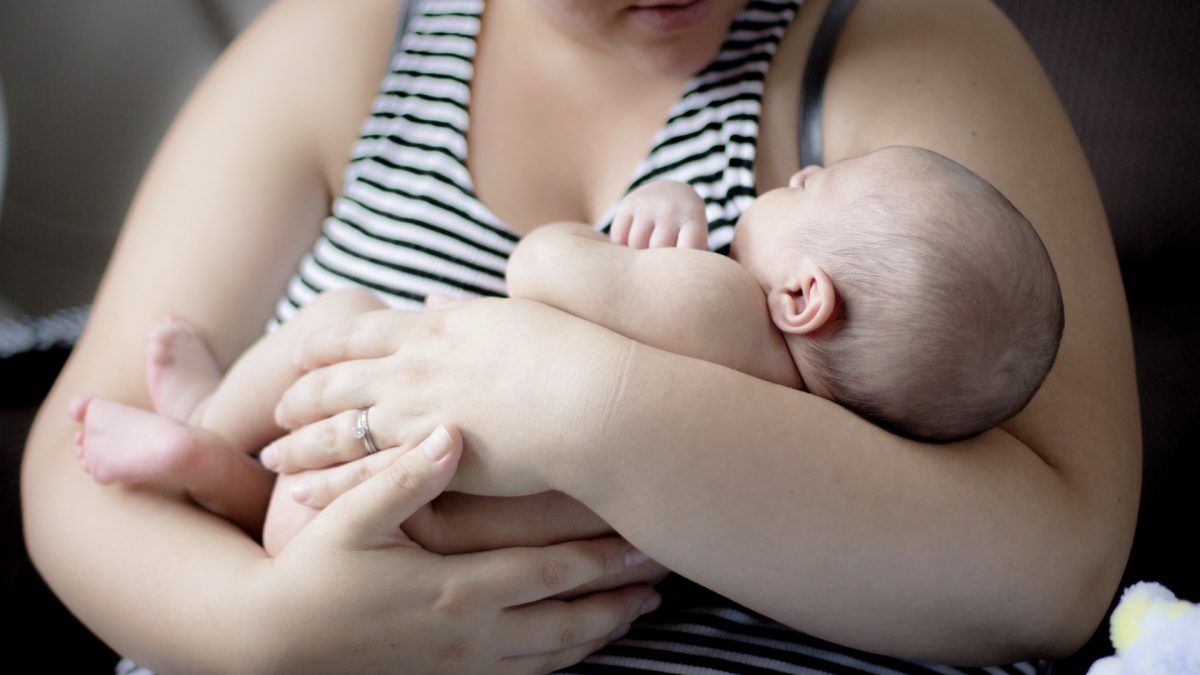“Since the beginning of time, pregnant women have been reported to suffer from a syndrome variously known as morning sickness, pregnancy sickness, or nausea and vomiting during pregnancy.” The term “morning sickness” is actually misleading, as women can feel sick all day long. Sometimes, it can get so serious that women have to be hospitalized.
Researchers at Harvard’s Brigham and Women’s Hospital found that saturated fat seemed to be a primary dietary risk factor for severe sickness, with five times the odds for every 15 grams intake of saturated fat, “equivalent to one quarter-pound cheeseburger.” The reason saturated fat intake may be such a strong risk factor could be through its effects on estrogen, as “[s]aturated fat has been shown to increase circulating levels of estrogen.”
Why would we evolve to have such a negative reaction to saturated fat? Why would we evolve to get sick at all? As I discuss in my video Morning Sickness May Protect Mother and Child, “[p]regnancy sickness is a universal phenomenon, affecting 70% to 85% of all pregnant women.” If food aversions are included in the criteria, along with nausea and vomiting, the incidence is more like 100 percent. “Because pregnancy sickness is such a common phenomenon, one must question why is this so? Is there a purpose for such a potentially devastating condition?” In the past, pregnancy sickness was dismissed as just being in women’s heads, but recent “studies have reconsidered pregnancy sickness as an embryo-protective mechanism, an evolutionary adaptation to protect the embryo.”
Protect the baby from what? From meat. “Meat is the principal source of pathogens for humans. Meat is also the most common type of food avoided by pregnant women.” So, the development of an aversion to meat during pregnancy could be protective because “meat may have toxins that are mutagenic, carcinogenic, and teratogenic,” meaning causing birth defects, and tainted meat may also be contaminated by pathogens. “Pregnancy is a time of relative immunosuppression.” Normally, we can fend off most meat pathogens. “However, by biological design from evolutionary pressures, pregnant women are immunosuppressed to not reject the developing embryo”––as half the baby (from the father’s side) is foreign. So, morning sickness may have evolved as a way to get us to stay away from meat during this vulnerable time. This would be consistent with a “profound overrepresentation of meat taboos” in sample societies around the world.
If this theory is true, then we should be able to make five predictions. First, if nausea and vomiting in pregnancy are meant to be protective, women who experience them should have better pregnancy outcomes. Indeed, women who suffer from nausea and vomiting are significantly less likely to miscarry or have a stillbirth.
Second, the foods that trigger nausea and vomiting should contain things that can be particularly harmful to the baby, and, in fact, “[o]f all food types, animal protein (including meat, poultry, eggs, and seafood…) is the most dangerous. Meat is the source of a wide range of pathogens that pose a grave threat to pregnant women and developing organisms” that is, their developing embryos.
Third, nausea and vomiting in pregnancy should also coincide with the time when the embryo is most vulnerable, which is approximately weeks 5 through 15, when all the critical organ structures are being formed. And, indeed, that period is right when nausea and vomiting are in fact peaking.
Fourth, pregnant women should find meat and eggs most aversive during this time of heightened embryo sensitivity, and that, too, is the case. And finally, if this theory is true, one should expect a lower frequency of morning sickness among plant-based populations, and, yes, the few societies in which we don’t see such morning sickness problems are the ones that tend to have only plants as dietary staples, rather than meat.
What can you do if you suffer from morning sickness? See Natural Treatments for Morning Sickness.
What other effects can diet have on a healthy pregnancy? See, for example,
- Heart Disease May Start in the Womb
- Lead Contamination of Tea
- Caution: Anti-Inflammatory Foods in the Third Trimester
- Flame-Retardant Pollutants and Child Development
- Why Do Vegan Women Have 5x Fewer Twins?
- Pollutants in Salmon and Our Own Fat
- Bacon, Eggs, and Gestational Diabetes During Pregnancy
- How Long to Detox from Fish Before Pregnancy?
- Meat Fumes: Dietary Secondhand Smoke
- Maternal Diet May Affect Stress Responses in Children
In health,
Michael Greger, M.D.
PS: If you haven’t yet, you can subscribe to my free videos here and watch my live, year-in-review presentations:
- 2012: Uprooting the Leading Causes of Death
- 2013: More Than an Apple a Day
- 2014: From Table to Able: Combating Disabling Diseases with Food
- 2015: Food as Medicine: Preventing and Treating the Most Dreaded Diseases with Diet
- 2016: How Not To Die: The Role of Diet in Preventing, Arresting, and Reversing Our Top 15 Killers
